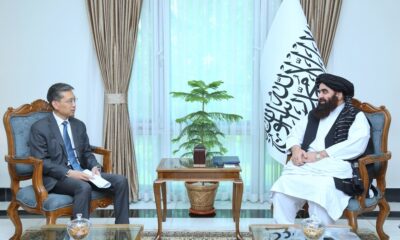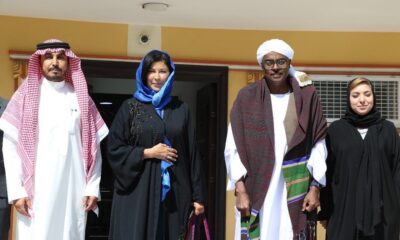Latest News
Pakistan rejects reports of new US military base on its soil
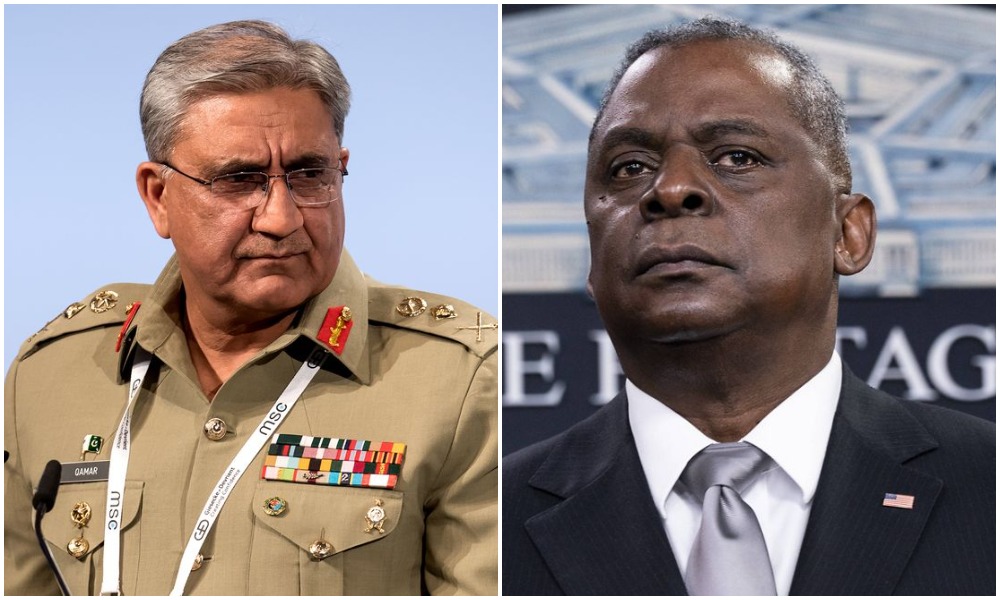
Islamabad on Monday rejected reports of the US military setting up a base inside Pakistan as it withdraws troops from Afghanistan.
“There is no US military or air base in Pakistan, nor is any such proposal envisaged. Any speculation on this account is baseless and irresponsible and should be avoided,” Pakistan’s Foreign Office spokesperson said in a press release.
He further said Pakistan and the US have a framework of cooperation in terms of air lines of communication (ALOC) and ground lines of communication (GLOC) in place since 2001. “No new agreement has been made in this regard,” he stated.
This comes after reports emerged this week that Pakistan has allowed the US to use its airspace and ground access.
David F Helvey, Assistant Secretary of Defence for Indo-Pacific Affairs, told the US Senate Armed Services Committee last week that the United States would continue its conversation with Pakistan because it had a critical role in restoring peace to Afghanistan.
“Pakistan has played an important role in Afghanistan. They supported the Afghan peace process. Pakistan also has allowed us to have overflight and access to be able to support our military presence in Afghanistan,” Helvey had told the committee.
“We will continue our conversations with Pakistan because their support and contribution to the future of Afghanistan, to future peace in Afghanistan, is going to be critical,” he had added.
Sources meanwhile, told Ariana News on Monday that US forces have begun construction of a large military base across the Durand Line.
According to the sources, the base is being built at the Shalozan Kurram Agency area in the Tribal Area inside Pakistan – in the Zazai Aryub district which borders Paktia province in Afghanistan.
Members of the Paktia provincial council told Ariana News that the base is under construction 8km from the Durand Line inside Pakistan and “supplies are being delivered via air and ground every day.”
Colonel Sonny Legget, a spokesman for the US Forces in Afghanistan, however, rejected these reports.
Meanwhile, the National Security Advisers of Pakistan and the United States met in Geneva on Monday.
The meeting between Pakistan NSA Moeed Yusuf and his American counterpart Jake Sullivan is the first in-person high-level contact between the two countries since the Biden administration assumed office in January.
“Both sides had a positive conversation on a range of bilateral, regional, and global issues of mutual interest and agreed to advance practical cooperation on these issues,” Pakistan’s Daily Times reported.
In a tweet, NSA Yusuf said he was “pleased to meet US NSA @JakeSullivan46”, adding that the Pakistan and US delegations had held positive discussions on a range of issues.
The NSAs’ meeting comes days after Foreign Minister Shah Mahmood Qureshi told US lawmakers that Pakistan was seeking a broad-based, strategic partnership with America, which would also cover Afghanistan.
In virtual meetings with members of the House of Representatives and the Senate, the foreign minister invited a group of 15 US lawmakers to visit Pakistan in June for consultations with their Pakistani counterparts and officials on how to improve bilateral relations.
On Monday, however, US Secretary of Defense Lloyd Austin had a phone conversation with Pakistan’s Chief of Army Staff, General Qamar Javed Bajwa.
According to a US Defense Department statement issued by Pentagon Press Secretary John Kirby, Austin and Bajwa discussed shared regional interests and objectives.
“During the call, Secretary Austin reiterated his appreciation for Pakistan’s support for Afghanistan Peace Negotiations and expressed his desire to continue to build on the U.S. – Pakistan bilateral relationship,” the statement read.
“Secretary Austin and General Bajwa discussed regional dynamics and our shared interest in security and stability in the region,” read the statement.
Latest News
Regional developments require Afghanistan, China’s full coordination to protect interests: Muttaqi
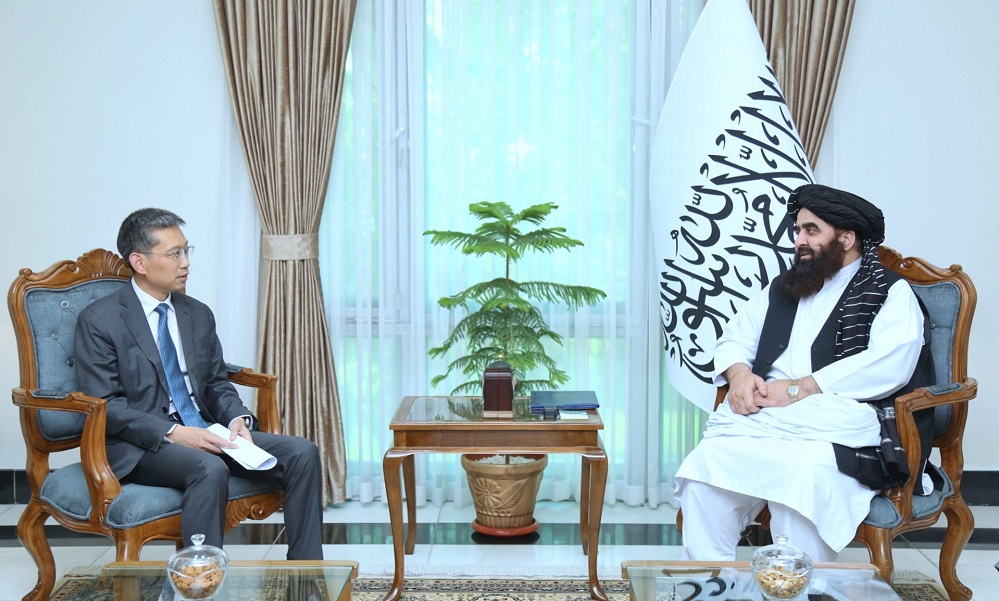
Acting Minister of Foreign Affairs Amir Khan Muttaqi has said that recent events and developments in the region require that Afghanistan and China continue their cooperation in full coordination so that they can protect their common interests.
Muttaqi stated this in a meeting with the Chinese ambassador in Kabul Zhao Xing.
The Ministry of Foreign Affairs said in a statement Tuesday that the two sides discussed bilateral political, economic and cultural cooperation between Afghanistan and China and the recent developments in the region.
Muttaqi expressed his satisfaction with the expansion of political, economic and cultural relations between the two countries and said that the Islamic Emirate has created good opportunities in the field of trade and investment.
He pointed out that the increase in the export of pine nuts to China and the progress in the Mes Aynak and Wakhan Corridor projects are clear examples of this policy of the Islamic Emirate.
According to the Ministry of Foreign Affairs’ statement, the Chinese ambassador considered the developments in various fields with Afghanistan as positive and added that he seeks to encourage Chinese businessmen and investors to play their role for long-term economic cooperation with Afghanistan.
He also said that his country is considering ways of bilateral cooperation and resources regarding Wakhan Corridor.
Latest News
Rashid Khan named AWCC’s brand ambassador
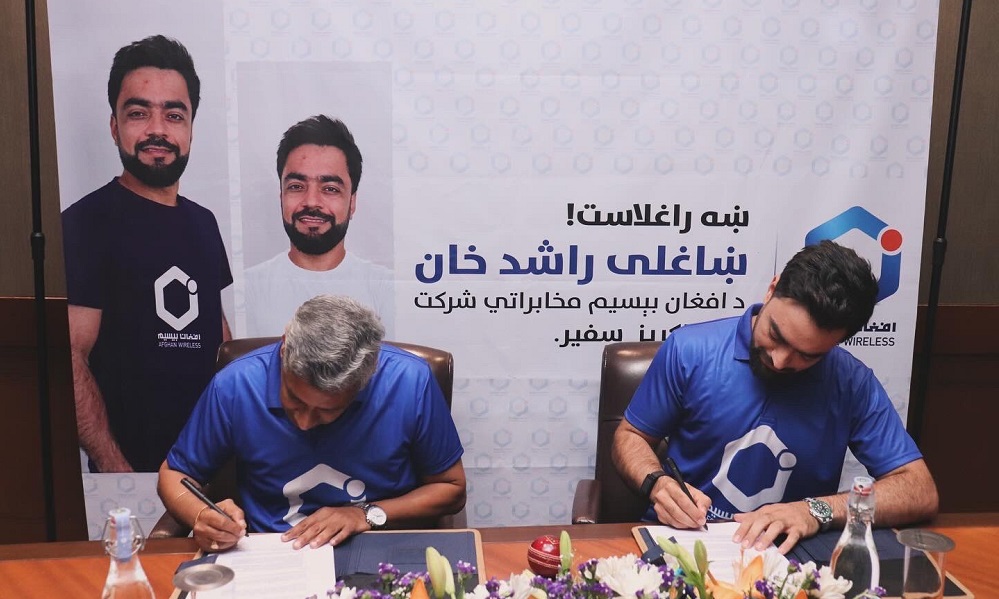
Afghanistan’s cricket superstar Rashid Khan has joined Afghan Wireless Communication Company (AWCC) as its exclusive brand ambassador.
“Rashid Khan is a young and prominent personality of the country who has shone brilliantly in cricket and in his social life,” AWCC said in a statement.
Rashid said he was thrilled to join AWCC as its brand ambassador.
“This is a great brand that I have always believed in and AWCC has been a front runner in the digital possibilities materializing in the country,” Khan said on X.
“Together I hope that we help more people to connect, encourage people to learn more and further utilize their talents and share their experiences more widely.”
What makes Rashid great!
Rashid Khan was Afghanistan’s first global superstar, and the key to the team’s successes in their early years in international cricket.
ESPNcricinfo experts say his extraordinarily effective leg spin has made him one of the greatest T20 bowlers ever, and among the first names on wish lists of teams in leagues all around the world.
Not a big turner of the ball, he puts batters under pressure with his speed through the air, like his bowling idol Shahid Afridi, while maintaining a stump-to-stump line. His biggest weapon is an accurate googly, and he has many variations. With bat in hand he is more than capable of clearing the boundary late in an innings, and he has airbrushed many a middling total into a match-winning one for his team, ESPNcricinfo states.
Rashid was just 17 when he made his ODI debut during Afghanistan’s tour of Zimbabwe in October 2015. Less than two years later, he was snapped up by Sunrisers Hyderabad in the IPL for close to US$600,000.
After a superb 17-wicket first season with them, he picked up franchise deals with Guyana Amazon Warriors – for whom he took the first-ever hat-trick in the CPL in 2017 – and Adelaide Strikers, with whom he won his (and their) first BBL title in 2018.
He scaled new heights for Afghanistan as well, taking 5 for 3 in a T20I against Ireland to keep a record 11-match T20I winning streak alive, and later in 2017, taking his country to a win over West Indies in their first ODI in the Caribbean with 7 for 18.
He was duly honored as the 2017 ICC Associate Cricketer of the Year.
The following year, he became the youngest cricketer to top the ODI bowling rankings, the youngest man to captain an international side, and the fastest to 100 ODI wickets.
In Afghanistan’s inaugural year in Test cricket, Rashid took five second-innings wickets in the team’s first win, against Ireland, and six months later made an important fifty and took twin five-fors, finishing with 11 wickets in a famous win over Bangladesh in Chattogram. In 2021, he took 11 again, this time in a win over Zimbabwe.
In his five seasons with Sunrisers, he was a huge presence, taking 93 wickets at an economy rate of 6.33. When he moved to Gujarat Titans in 2022, he took 19 wickets in a run that led the side to the title.
Latest News
EU, OIC envoys meet to discuss humanitarian situation and education in Afghanistan
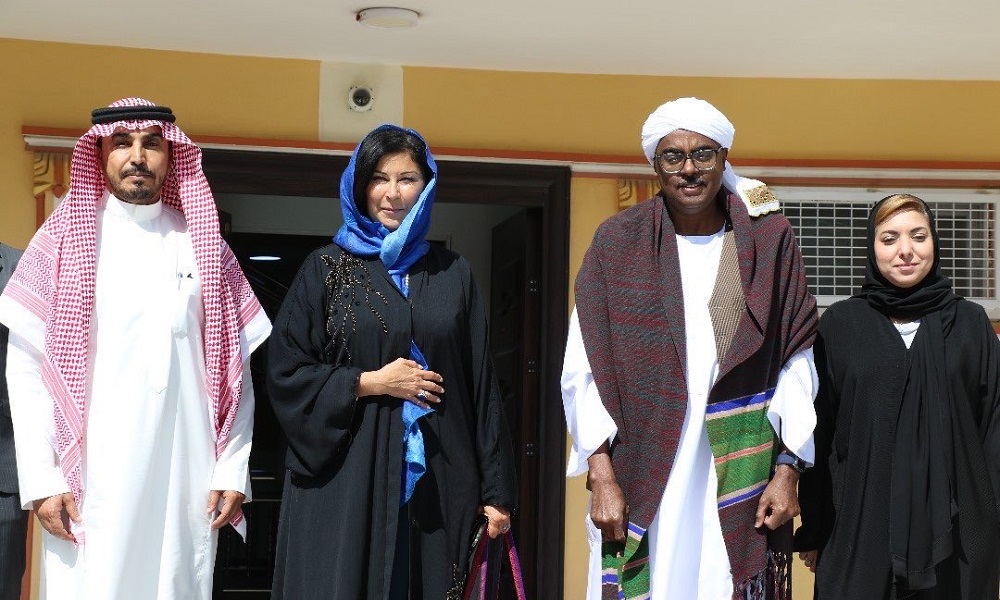
EU Chargé d’affaires in Afghanistan Raffaella Iodice met Tariq Ali Bakheet, OIC’s Assistant Secretary-General for Humanitarian, Cultural, Family and Social Affairs and special envoy for Afghanistan, and his accompanying delegation in Kabul, it was announced Tuesday.
Iodice said on X that they discussed the humanitarian and economic situation in Afghanistan as well as the right to education.
“Principled support for the sake of the people remains key,” she said. “Female voices need to be part of any dialogue and constructive engagement in Afghanistan.”
Earlier, the OIC delegation met with the officials of the Islamic Emirate.
-

 Business4 days ago
Business4 days agoCommerce ministry inks 10 MoUs to boost development of small and medium-sized businesses
-

 Sport4 days ago
Sport4 days agoRashid Khan threatens BBL pullout after Australia postpones Afghanistan T20I series
-

 Latest News4 days ago
Latest News4 days agoOver 6,000 acres of land cleared of poppies in Badakhshan
-

 Health5 days ago
Health5 days agoBalkh health officials report sharp increase in number of cancer patients
-

 Latest News4 days ago
Latest News4 days agoMSF ‘deeply concerned’ over new phase of deportations of Afghans from Pakistan
-

 Sport3 days ago
Sport3 days agoAfghanistan Champions League kicks off with grand opening ceremony
-

 Latest News2 days ago
Latest News2 days agoPakistan’s frontiers minister stresses ‘dignified’ return of Afghan refugees
-

 Regional3 days ago
Regional3 days agoIran’s foreign minister downplays drone attack, says Tehran investigating




